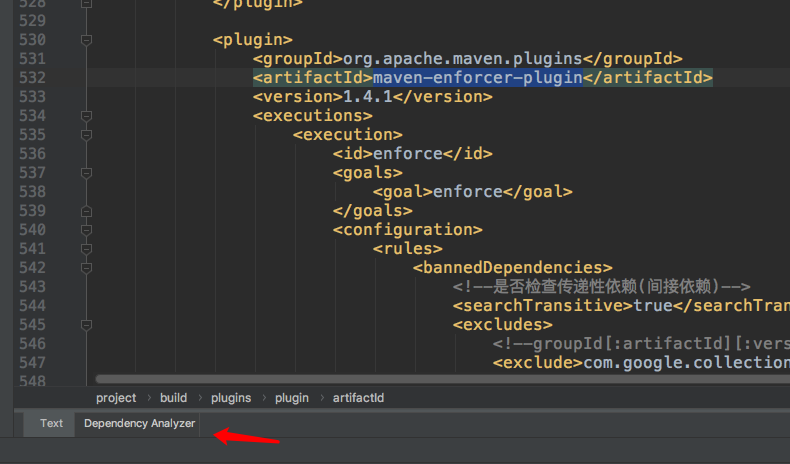背景
在项目中经常被log4j的各种依赖冲突搞的焦头烂额,久病成良医啊,在这里记录一下我对log4j的理解与分析
log4j 与 log4j2
log4j2是log4j的升级版,二者互不兼容,据说log4j2带来了十倍的性能提升,所以基本上不再使用log4j1
那么log4j 1代的依赖长什么样呢?
<artifactId>log4j</artifactId>
<groupId>log4j</groupId>log4j2的依赖
<dependency>
<groupId>org.apache.logging.log4j</groupId>
<artifactId>log4j-api</artifactId>
<version>2.11.0</version>
</dependency>
<dependency>
<groupId>org.apache.logging.log4j</groupId>
<artifactId>log4j-core</artifactId>
<version>2.11.0</version>
</dependency>如果你的项目是web项目,最好加上
<dependency>
<groupId>org.apache.logging.log4j</groupId>
<artifactId>log4j-web</artifactId>
<version>2.11.0</version>
</dependency>slf4j
slf4j全称为Simple Logging Facade for JAVA,java简单日志门面。类似于Apache Common-Logging,是对不同日志框架提供的一个门面封装,可以在部署的时候不修改任何配置即可接入一种日志实现方案。但是,他在编译时静态绑定真正的Log库。使用SLF4J时,如果你需要使用某一种日志实现,那么你必须选择正确的SLF4J的jar包的集合(各种桥接包)。
slf4j静态绑定原理:SLF4J 会在编译时会绑定import org.slf4j.impl.StaticLoggerBinder; 该类里面实现对具体日志方案的绑定接入。任何一种基于slf4j 的实现都要有一个这个类。如:org.slf4j.slf4j-log4j12-1.5.6: 提供对 log4j 的一种适配实现。注意:如果有任意两个实现slf4j 的包同时出现,那么就可能出现问题。
slf4j 的依赖我们后面再分析,不同的实现对应不同的依赖
common-logging
common-logging是apache提供的一个通用的日志接口。用户可以自由选择第三方的日志组件作为具体实现,像log4j,或者jdk自带的logging, common-logging会通过动态查找的机制,在程序运行时自动找出真正使用的日志库。当然,common-logging内部有一个Simple logger的简单实现,但是功能很弱。所以使用common-logging,通常都是配合着log4j来使用。使用它的好处就是,代码依赖是common-logging而非log4j, 避免了和具体的日志方案直接耦合,在有必要时,可以更改日志实现的第三方库。
common-logging的依赖
<artifactId>commons-logging</artifactId>
<groupId>commons-logging</groupId>slf4j 与 common-logging 比较
common-logging通过动态查找的机制,在程序运行时自动找出真正使用的日志库。由于它使用了ClassLoader寻找和载入底层的日志库, 导致了象OSGI这样的框架无法正常工作,因为OSGI的不同的插件使用自己的ClassLoader。 OSGI的这种机制保证了插件互相独立,然而却使Apache Common-Logging无法工作。
slf4j在编译时静态绑定真正的Log库,因此可以再OSGI中使用。另外,SLF4J 支持参数化的log字符串,避免了之前为了减少字符串拼接的性能损耗而不得不写的if(logger.isDebugEnable()),现在你可以直接写:logger.debug(“current user is: {}”, user)。拼装消息被推迟到了它能够确定是不是要显示这条消息的时候,但是获取参数的代价并没有幸免(可以通过lambda达到延迟生成参数的效果)。
public static void delayDebug(Supplier<String> message) {
if (log.isDebugEnabled()) {
log.debug(message.get());
}
}LogBack
Logback是由log4j创始人设计的又一个开源日记组件。logback当前分成三个模块:logback-core,logback- classic和logback-access。logback-core是其它两个模块的基础模块。logback-classic是log4j的一个 改良版本。此外logback-classic完整实现SLF4J API使你可以很方便地更换成其它日记系统如log4j或JDK14 Logging。logback-access访问模块与Servlet容器集成提供通过Http来访问日记的功能。
logback的依赖
<dependency>
<groupId>ch.qos.logback</groupId>
<artifactId>logback-classic</artifactId>
</dependency>(听上去logback比log4j2更好,日后可以考虑切换到logback)
Log4j 与 LogBack 比较
LogBack作为一个通用可靠、快速灵活的日志框架,将作为Log4j的替代和SLF4J组成新的日志系统的完整实现。LOGBack声称具有极佳的性能,“ 某些关键操作,比如判定是否记录一条日志语句的操作,其性能得到了显著的提高。这个操作在LogBack中需要3纳秒,而在Log4J中则需要30纳秒。 LogBack创建记录器(logger)的速度也更快:13微秒,而在Log4J中需要23微秒。更重要的是,它获取已存在的记录器只需94纳秒,而 Log4J需要2234纳秒,时间减少到了1/23。跟JUL相比的性能提高也是显著的”。 另外,LOGBack的所有文档是全面免费提供的,不象Log4J那样只提供部分免费文档而需要用户去购买付费文档。
实战
我们在项目中使用的log4j2,引入了log4j2的依赖,并且强制干掉了其它日志组件的依赖,同时使用slf4j桥接其它日志组件的实现
log4j2的依赖
<dependency>
<groupId>org.apache.logging.log4j</groupId>
<artifactId>log4j-api</artifactId>
<version>2.11.0</version>
</dependency>
<dependency>
<groupId>org.apache.logging.log4j</groupId>
<artifactId>log4j-core</artifactId>
<version>2.11.0</version>
</dependency>如果你的项目是web项目,最好加上
<dependency>
<groupId>org.apache.logging.log4j</groupId>
<artifactId>log4j-web</artifactId>
<version>2.11.0</version>
</dependency>强制干掉了其它日志组件的依赖
借助于idea的maven-helper组件,以及maven的maven-enforcer-plugin插件进行验证


配置
<plugin>
<groupId>org.apache.maven.plugins</groupId>
<artifactId>maven-enforcer-plugin</artifactId>
<version>1.4.1</version>
<executions>
<execution>
<id>enforce</id>
<goals>
<goal>enforce</goal>
</goals>
<configuration>
<rules>
<bannedDependencies>
<!--是否检查传递性依赖(间接依赖)-->
<searchTransitive>true</searchTransitive>
<excludes>
<!--groupId[:artifactId][:version][:type][:scope][:classifier]-->
<exclude>com.google.collections:google-collections</exclude>
<exclude>log4j</exclude>
<exclude>slf4j-log4j12</exclude>
<exclude>commons-logging</exclude>
<exclude>ch.qos.logback</exclude>
<exclude>org.slf4j:slf4j-jdk14</exclude>
<exclude>org.slf4j:slf4j-simple</exclude>
<exclude>org.slf4j:slf4j-nop</exclude>
<exclude>org.slf4j:slf4j-jcl</exclude>
</excludes>
<message>Must not use google-collections, use guava</message>
</bannedDependencies>
</rules>
</configuration>
</execution>
</executions>
</plugin>slf4j桥接其它日志组件
<!--commons logging到slf4j的实现-->
<dependency>
<groupId>org.slf4j</groupId>
<artifactId>jcl-over-slf4j</artifactId>
<version>1.7.25</version>
</dependency>
<!--log4j1到slf4j的实现-->
<dependency>
<groupId>org.slf4j</groupId>
<artifactId>log4j-over-slf4j</artifactId>
<version>1.7.25</version>
</dependency>
<!--java util logging-->
<dependency>
<groupId>org.slf4j</groupId>
<artifactId>jul-to-slf4j</artifactId>
<version>1.7.25</version>
</dependency>slf4j到log4j2的实现
<dependency>
<groupId>org.apache.logging.log4j</groupId>
<artifactId>log4j-slf4j-impl</artifactId>
<version>2.11.0</version>
</dependency>